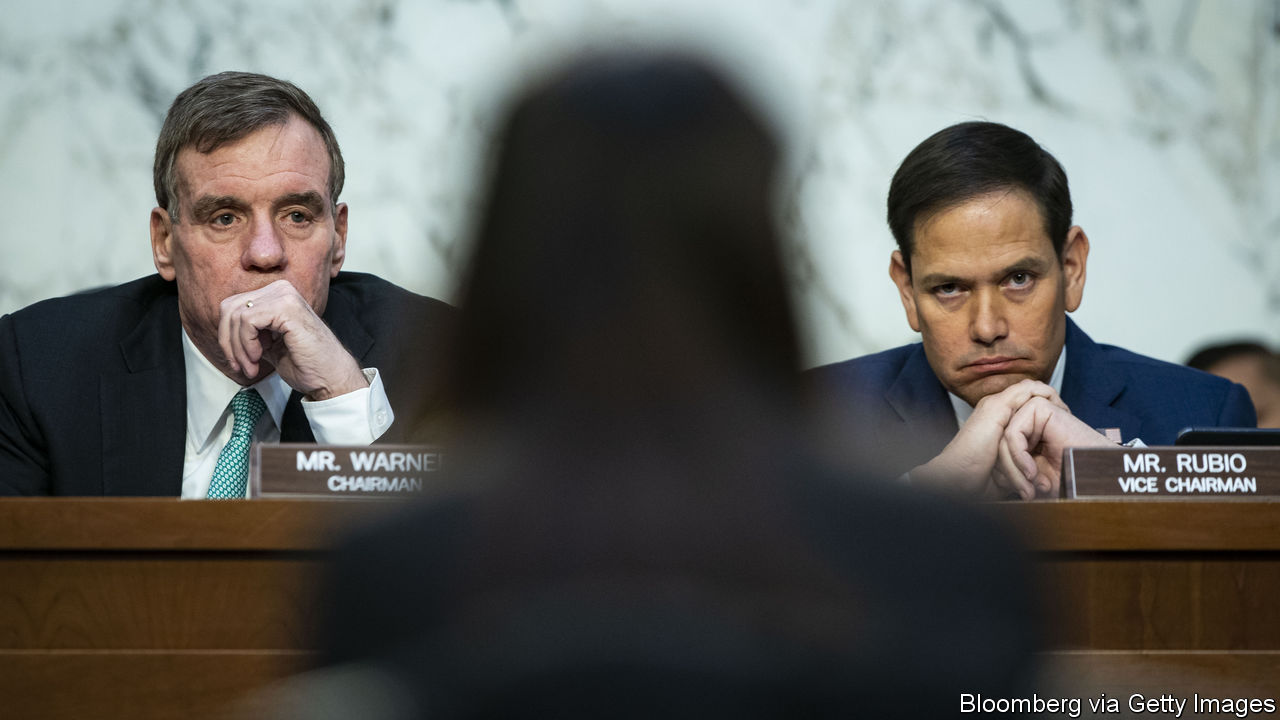
Just when China and America seemed to be moving past the spy-balloon saga of February, a new flashpoint has emerged in the form of an alleged plan for China to establish a listening station in Cuba. Chinese and Cuban authorities have reached a secret agreement on setting up the electronic eavesdropping facility, the Wall Street Journal reported on June 8th, quoting unidentified American officials. Other outlets, such as the New York Times and Politico, have since filed similar reports. The Journal said China had agreed to pay Cuba several billion dollars in the deal.
The White House, the Pentagon and the Cuban government all denied the reports. “We are not aware of China and Cuba developing a new type of spy station,” said Brigadier-General Patrick Ryder, a Pentagon spokesperson. John Kirby, spokesman for the National Security Council, said the American government had real concerns about China’s relationship with Cuba but was confident it could meet America’s security commitments at home and in the region.
The reports nonetheless sparked outrage from China hawks in Congress, posing a fresh challenge for President Joe Biden’s recent efforts to resume high-level exchanges with China. “We urge the Biden administration to take steps to prevent this serious threat to our national security and sovereignty,” the top lawmakers on the Senate Intelligence Committee said in a joint statement. “We are deeply disturbed,” said Mark Warner, the Democrat who chairs the panel, and Marco Rubio, the Republican vice-chairman.
The strategic significance of such an agreement remains unclear. China has long been reported to have a small military presence in Cuba as well as access to listening stations at Bejucal, near Havana, and at Santiago de Cuba on its south-east coast. China is also thought to have several other such facilities around the world, including one in Argentina. America is believed to have plenty of its own too, including ones near China, and American navy ships and aircraft regularly conduct surveillance operations off China’s coast.
Even so, a new listening station some 100 miles (160km) from the coast of Florida could enhance China’s ability to monitor electronic communications, ship and aircraft movements, and other potentially sensitive activity around the south-eastern United States, which is home to several important military bases. It would no doubt fuel concerns among American and allied officials about what they describe as efforts by China to expand its military presence and intelligence operations around the world, while conducting more aggressive interceptions of American and allied surveillance operations around its own borders.
The reported Chinese plans in Cuba are also bound to provoke a strong political reaction in America given hawkish sentiment towards China among the public and on both sides of the aisle in Congress. Cuba’s involvement resonates all the more because of its role in the cold war, when the Soviet Union’s decision to deploy nuclear-capable missiles there in 1962 caused a stand-off with America that almost escalated into atomic war. Cuba also hosted the Soviets’ biggest overseas listening station at Lourdes, near Havana, and allowed Russia to use it until the early 2000s.
Mike Gallagher, a Republican congressman who chairs the House of Representatives’ new bipartisan Select Committee on the Chinese Communist Party, invoked the Cuban missile crisis in his response to the reported plan. It “reminds us we are in a New Cold War that, once again, has come to our doorstep,” he said in a statement, calling for restrictions on outbound investment to China and on Chinese land purchases near American military bases. “We must make it clear that, as President Kennedy said over 60 years ago on the eve of a previous crisis in Cuba, ‘One path we shall never choose, and that is the path of surrender or submission.’” Nikki Haley, a Republican presidential candidate, wrote on Twitter: “Joe Biden needs to wake up to the real Chinese threats on our doorstep.”
A listening station poses a negligible threat compared to nuclear missiles. Yet the potential for over-reaction in the current political climate became clear in February when an American fighter jet shot down a high-altitude balloon that the Pentagon said was part of a global Chinese spying operation and had been monitoring American military bases. China said it was monitoring the weather and blew off course, but America rejected that explanation and postponed a planned visit to Beijing by Antony Blinken, the secretary of state.
That stalled efforts to revive high-level talks that were frozen after a visit to Taiwan in August by Nancy Pelosi, the speaker of the House of Representatives at the time. Meetings between some senior officials have resumed in recent weeks, including a secret visit to Beijing in May by the head of the Central Intelligence Agency, William Burns. Jake Sullivan, America’s national security adviser, also held talks with China’s top diplomat, Wang Yi, in Vienna that month. Mr Blinken’s visit is said to have been rescheduled for some time in June. However, neither side has confirmed that yet.
China has forged close ties with Cuba since the end of the cold war and is now its largest trading partner and one of its biggest lenders. America severed diplomatic ties with Cuba shortly after Fidel Castro’s communist regime came to power in 1959 and only restored them in 2014. Donald Trump, the former president, reinstated sanctions on the country while in office. Mr Biden has lifted some of these. America also continues to operate a military base in Guantánamo Bay in what Cuba describes as an illegal occupation of its land. America has used the base as a signals-intelligence station in the past. ■
The Economist

